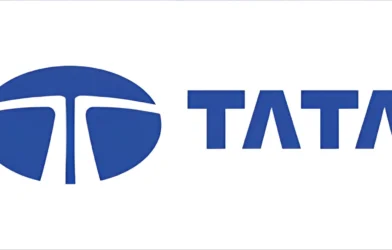Author: Dev Patel | EQMint | General News
In a bold strategic pivot, Dream11, India’s leading fantasy sports platform, is preparing to enter the world of stock broking and wealth management, marking one of the most striking business transformations in the country’s digital landscape. Following the nationwide ban on real-money gaming, Dream11 has reportedly applied for a stock broking license from the Securities and Exchange Board of India (SEBI) — a move that signals its ambition to stay relevant and resilient in an evolving regulatory environment.
The transition underscores a broader trend among India’s digital-first startups — diversifying revenue streams and exploring adjacent industries as government scrutiny intensifies over online gaming and betting. For Dream11, once the crown jewel of India’s fantasy sports ecosystem, this marks a new beginning in financial services.
From Fantasy Fields to Financial Markets
Founded in 2008 by Harsh Jain and Bhavit Sheth, Dream11 rose to prominence by blending India’s obsession with cricket and the growing accessibility of digital payments. By the early 2020s, it had amassed over 200 million users, dominated the fantasy sports segment, and became India’s first gaming unicorn.
However, the landscape changed drastically when the Indian government and several states began tightening laws on real-money gaming, citing concerns over gambling addiction, tax evasion, and consumer protection. Dream11, which earned most of its revenue through paid fantasy contests, faced severe setbacks as regulatory barriers mounted and new tax rates — particularly the 28% GST on gaming transactions — slashed margins.
The ban on real-money contests across multiple states forced Dream11 to halt operations in key markets, resulting in heavy revenue losses and layoffs. But instead of retreating, the company saw an opportunity — to repurpose its massive user base and data-driven engagement model toward something far more sustainable: investment and wealth management.
Dream11’s New Game Plan: Trading, Not Tosses
According to reports, Dream11 has sought a stock broking license from SEBI, aiming to position itself as a digital-first investment platform. The goal is to allow users to trade equities, mutual funds, ETFs, and potentially even derivatives — turning its sports-loving users into retail investors.
By leveraging its strong mobile presence, data analytics infrastructure, and user trust, Dream11 could potentially emulate the playbook of fintech disruptors like Groww, Zerodha, and Upstox, but with a unique twist — its vast, gamified ecosystem and community engagement.
If approved, Dream11’s new platform could combine financial literacy with gaming-style incentives, offering fantasy-like experiences around stock portfolios — a concept that resonates with India’s young, risk-tolerant, and tech-savvy demographic.
An executive close to the matter reportedly stated:
“Dream11 is not just changing industries; it’s redefining its identity. From a platform for cricket fans, it now wants to be a platform for every young Indian who wants to play the investment game.”
A Calculated Comeback After the Ban
Dream11’s diversification comes at a critical time. Following the ban on real-money fantasy contests, the company’s revenues plummeted and valuations dropped, forcing it to rethink its growth model.
Transitioning into stock broking offers a chance to stabilize its financial footing while utilizing its existing technological backbone. The company’s familiarity with managing large-scale digital transactions, app-based engagement, and user retention gives it an edge in the crowded fintech ecosystem.
The stock broking market in India has exploded in recent years, driven by the rise of retail participation. Over 140 million demat accounts were active as of mid-2025 — more than double the number from 2021. Platforms like Groww, Zerodha, Angel One, and Upstox have already transformed investing into a mainstream digital activity.
Dream11’s entry could further disrupt the space by combining gaming engagement mechanics with financial investing — effectively turning investing into an interactive, competitive experience.
Challenges on the Pitch
However, Dream11’s pivot is not without obstacles. The financial services sector is highly regulated and demands a different level of compliance, governance, and user transparency than online gaming.
Obtaining SEBI approval will require Dream11 to demonstrate robust risk management, data security, and investor protection frameworks. The company will also face stiff competition from established fintech leaders who already enjoy strong brand equity and trust within the investor community.
Additionally, converting its fantasy gaming audience into active investors will require a significant shift in consumer mindset. Dream11 will need to invest heavily in financial education, onboarding experiences, and regulatory communication to ensure users understand the risks and rewards of investing — far different from the short-term thrill of fantasy contests.
Turning Setback into Strategy
For Dream11’s founders, this move represents a pragmatic evolution rather than a desperate reinvention. The company’s massive user database, advanced mobile interface, and machine learning-driven personalization tools provide a strong foundation for reimagining its business model.
By integrating gamified trading dashboards, leaderboards, and social investing features, Dream11 could create a niche where financial participation feels familiar — and even entertaining — to its users.
Industry experts view this as part of a larger fintech convergence happening in India, where the lines between entertainment, technology, and finance are blurring rapidly.
“Dream11’s entry into stock broking could inspire other consumer tech platforms to explore financial verticals. It’s a natural evolution in a market where user attention is the most valuable asset,” said a Mumbai-based venture analyst.
Market Context and Strategic Vision
Dream11’s rebranding also aligns with India’s broader digital economy narrative. As disposable incomes grow and financial inclusion expands, millions of first-time investors are entering the markets.
For Dream11, this represents an untapped goldmine — an audience already accustomed to risk-taking, competition, and digital engagement. The company’s shift also fits within the government’s push toward regulated financial innovation and responsible wealth creation, a contrast to the uncertainty that plagued the real-money gaming sector.
While it remains to be seen how SEBI responds to Dream11’s application, insiders believe the company could roll out pilot financial services under a separate fintech entity, allowing it to test the waters before a full-scale launch.
Conclusion: From Players to Investors
Dream11’s transformation from a fantasy sports giant to a fintech hopeful reflects the adaptability of India’s startup ecosystem. In an era where regulatory shocks can reshape industries overnight, Dream11 is proving that reinvention — not resistance — is key to survival.
By shifting from “dream teams” to “investment portfolios,” the company is betting that the same competitive energy that drives fantasy gaming can power India’s next generation of investors.
If executed well, this could mark one of the most fascinating pivots in India’s digital business history — where a gaming company evolves into a serious player in the world of finance.
For more such information visit EQMint
Disclaimer: This article is based on information available from public sources. It has not been reported by EQMint journalists. EQMint has compiled and presented the content for informational purposes only and does not guarantee its accuracy or completeness. Readers are advised to verify details independently before relying on them.








